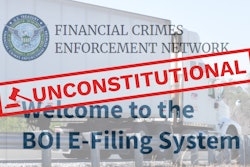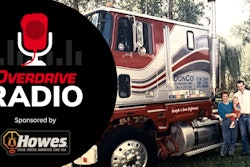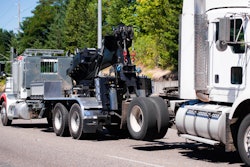Trucking news and briefs for Friday, Dec. 27, 2024:
FMCSA denies 'driverless' trucking company's warning device exemption request
The Federal Motor Carrier Safety Administration on Friday denied a request to exempt autonomous trucks from a regulation about the placement of warning devices. The request came from Waymo and Aurora, two of the leading companies working on so-called "driverless" trucks.
Current regulations require “whenever a commercial motor vehicle is stopped upon the traveled portion of the shoulder of a highway for any cause other than necessary traffic stops, the driver shall" put down warning devices on the traffic side facing approaching traffic, another one 100 feet back in the lane or shoulder, and another one 100 feet away facing away from oncoming traffic.
Of course, a "driverless" truck couldn't place these markers, so in 2023, Waymo and Aurora requested an exemption from FMCSA, which it published on the federal register. The autonomous trucking companies "requested that they and 'other similarly situated companies' be permitted to instead use 'Cab-Mounted Warning Beacons' when the CMV is operated by a Level 4 Automated Driving System (ADS) either without a human on board or with a human on board when testing the warning beacons."
FMCSA cited a lack of evidence in denying the request.

"The broad exemption is not supported by the data presented and lacks necessary monitoring controls to ensure highway safety," FMCSA wrote in the notice. “FMCSA notes that this decision does not preclude applicants or others from seeking an exemption to use better-defined warning beacons for specified companies in particular locations, as one of the bases of the agency’s decision here is the broad reach of applicants’ request.”
The exemption request on the federal register received 51 comments, evenly split among supporting and opposing with one neutral comment. Among the opposition voices was the Owner-Operator Independent Drivers Association, saying Waymo and Aurora's cab-mounted lights idea was "not sufficient to ensure an equivalent or greater level of safety. ... Waymo/Aurora do not discuss any backup warning systems that can be implemented if and when an automated truck experiences any type of failure where the lights or beacons can no longer function,” OOIDA said, citing "too many instances where autonomous vehicle technology does not perform the way it is designed."
The association concluded, "Reflective triangles and flares are not reliant on technology systems that are so vulnerable to disruptions."
OOIDA offers help with meeting financial crime reporting requirement
After some legal back-and-forth, a requirement for small businesses to file Beneficial Ownership Information with the Treasury's Financial Crimes Enforcement Network, or face steep fines, has been reinstated.
If a business fails to make the required filing, it may face fines of up to $500 per day, Overdrive previously reported. For more information on exactly what the regulation requires, read this detailed report.
OOIDA on Thursday alerted its members to the requirement "for companies formed before January 1, 2024 to file their information by January 13, 2025."
"The Corporate Transparency Act requires most small businesses with 20 or fewer full-time employees to submit company information to the U.S. Treasury Department," an OOIDA rep said. "Companies filed since January 1, 2024 generally have 90 days to file, but there are different deadlines depending on when the business started."
OOIDA "has long opposed this requirement and continues to do so," the rep continued.
OOIDA advised that to file beneficial ownership information, go to fincen.gov/boi, and that OOIDA members can also call the organization for assistance at 800-444-5791.










